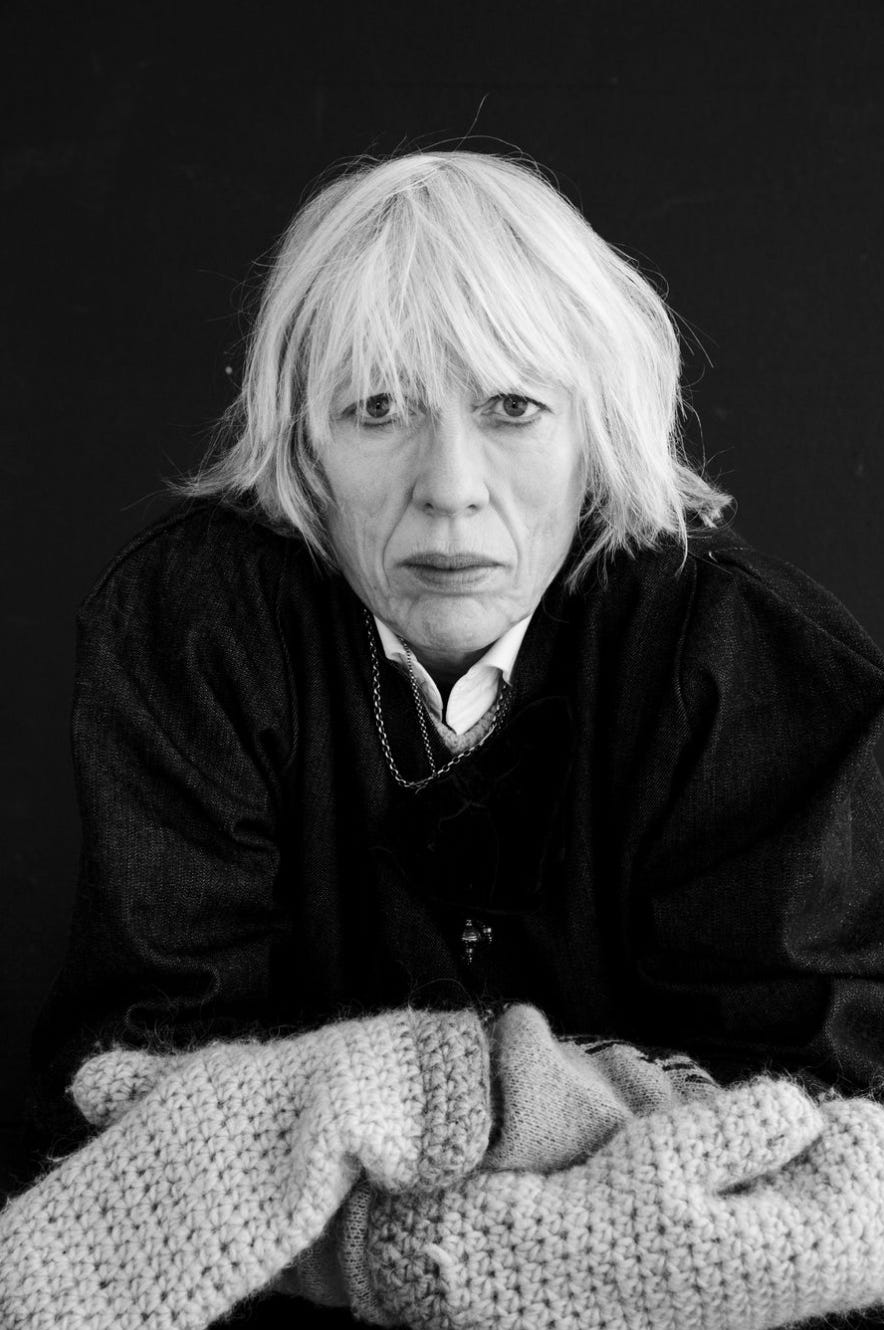A short guide to the Icelandic Literary Scene—for tourists
By my boarding school pal Vala Thorodds
Though most of my school memories are of myself, I have a peripheral image of Vala Thorodds as a striking and mysterious redhead, serious and self-contained. (Maybe we even rowed together? I remember somehow, too, being impressed by her full name “Valgerður Þóroddsdóttir.”) Since leaving school, she became heavily involved in the Icelandic literary scene. Now a well-respected translator of Icelandic literature, her English translation of Waitress in Fall was chosen by The Sunday Times and The White Review as poetry book of the year, and her translation of Swanfolk was long listed for the Oxford-Weidenfeld Prize. Swanfolk is a whirlwind magical-realist/dystopian spy novel (the reviewers on Amazon are not wrong when they say it’s “a truly weird story” and “a good book to read if you want something different”). Vala also founded Partus, a dual language press, and a new poetry journal called Pain.
Visiting Iceland has long been on my agenda. (Largely as a stopover location on my way to Europe.) So I reached out to Vala to give us both a travel guide to Iceland and a intro to the Icelandic literary scene, about which I’ve been curious since I read that “there were more published authors in Iceland than in any other country (per capita, of course).” An exciting prospect, perhaps.
If I was Substack, I’d plan activations there…
Iceland’s Literary Scene
Iceland is a bit of an exclusive club. The language does a lot of that work setting a high bar for entry (not to mention our brutal immigration laws). But even if you clear those hurdles, there’s a lot hidden in plain sight. In America, I feel, things are either public or they’re private. In Iceland, things are more like privately public—like, yeah, health care is sort of universal, but someone better teach you the moves of the deductible dance.
The Icelandic literary scene has something of this too, in the sense that there’s a lot to gain from having someone on the inside, propping open the doors. And in the sense that with the right know-how you can make ridiculous things happen. One of the first book launches I ever threw was in Reykjavík’s central bus terminal (it was on the news and the mayor gave a speech). Once my friend and I got our poems displayed on hundreds of billboards across Reykjavik, costing the city a small fortune in lost advertising revenue. This same friend is performing this week in Harpa’s main hall, where she’ll be alone on stage doing “glossolalia,” speaking in tongues, for an hour.
During the decade I published books in Iceland, I found that the most exciting work tended to come from people who had practices or interests in multiple artistic fields and forms. A lot of Iceland’s best writers have this pedigree, think Sjón and Bragi Ólafsson, who were both (sort of) in the Sugarcubes; Kristín Ómarsdóttir, Kristín Eiríksdóttir and Hallgrímur Helgason, who also have visual arts practices; or Eva Rún Snorradóttir and Friðgeir Einarsson, who come to writing via experimental theater. The multidisciplinary force is strong in Iceland, and I still try to locate interesting literary stuff by looking on the fringes and intersections, and at events and venues that are not straightforwardly literary. Bókumbók is a new artist-run bookstore/exhibition space blending visual art, book art and literature. It’s also worth keeping an eye on Marshallhúsið and Mengi, as well as whatever Ragnar Helgi Ólafsson is organizing, or wherever Ásta Fanney Sigurðardóttir—imagine if Laurie Anderson and Miranda July had a brilliant Icelandic baby—is performing, or indeed the now-Icelandic Anne Carson. You could also check out Skálda, our newest indie bookstore.
If you’re new to Icelandic fiction, it’s not a bad idea to start with the work of Sjón, who is prolifically and beautifully translated by Victoria Cribb. Try The Blue Fox or Moonstone.
Have you considered not coming to Iceland?
As for more traditional tourism, let me start by saying: Have you considered not coming to Iceland? Tourists are wearing down our roads and eroding our soil, shitting in our national parks, their toilet paper drifting across our landscapes. Tourism (and our government’s unhandling of it) is cannibalizing Reykjavík and turning the housing market into a hellscape. So, before you book your flight, maybe consider… just not. If you insist:





